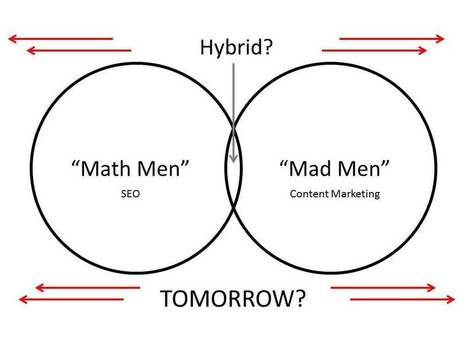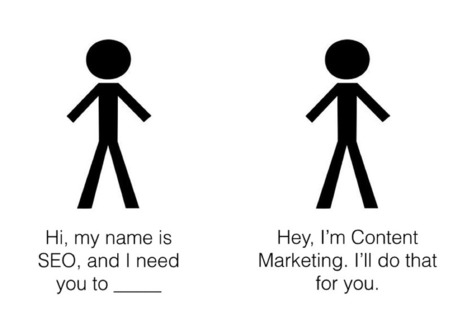SEO and content marketing are still not one and the same. However, they’re much more similar to each other today than what they were last decade. For much of this decade the search algorithms allowed for a “build it and they will come” environment for content marketers. In some ways, social media networks did, too. Both HubSpot and Moz reaped the benefits of this over the years. This made content marketers feel like SEOs and SEOs that created content for real consumers feel like content marketers.
Over the last five years the cat’s been let out of the bag. It’s no longer a secret that content marketing can drive copious amounts of traffic to a brand’s website. That’s one of the major reasons why the amount of content on the Internet is supposed to grow by 500% in the year 2020.
A lot of that growth in content can likely be attributed to the thought leadership of brands like Moz, HubSpot and CMI. However, in an era of 500% more content it becomes much more difficult for content to stand out, regardless of the channel (search, social, email, etc.).
Add to that, social media networks and search engines aren’t built to serve up that much content today. With social algorithms purposefully reducing organic visibility and only 10 organic positions on the first page of most search engines, how are brands supposed to stand out?
The age of “build it and they will come” is over for many major industry verticals. This conundrum has further pushed the two circles in the Venn diagram above further together....



 Your new post is loading...
Your new post is loading...


















SEO and content marketing work together like peanut butter and jelly.